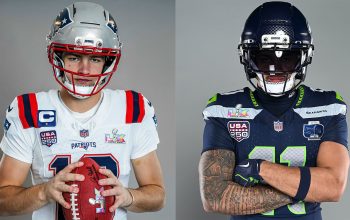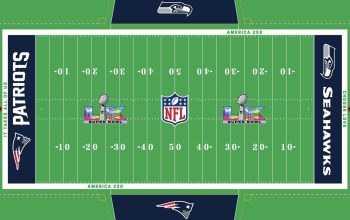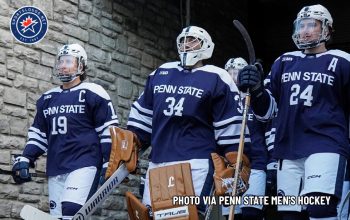
The Nebraska Cornhuskers have made a slight alteration the logo of their beloved mascot, Herbie Husker, changing the “OK” gesture he was making with his left hand to one that insinuates they are “No. 1” to avoid comparisons to white supremacy.
Herbie Husker was created by Lubbock, Texas, newspaper cartoonist Dirk West for the cover of Nebraska’s 1974 media guide, a season that ended with a 19-3 Cotton Bowl win over Texas. He depicts a blonde-haired, blue-eyed farmer wearing blue overalls with an ear of corn in his pocket and a big red cowboy hat on his head.

He is holding a football in his right arm and making an “OK” gesture with his left hand – a gesture that commonly viewed as a way to indicate that “all is well” but has recently been classified as a symbol of hate. Some claim the three upheld finger resemble a “W” while the circle and forearm resemble a “P,” together standing for “White Power.”
This was brought to the attention of Nebraska’s director of licensing Lonna Henrichs in the wake of George Floyd’s death, and she quickly asked the Cornhuskers’ in-house design team to Photoshop Herbie Husker’s hand to have one finger pointed in the air to match the logo for his counterpart, Lil’ Red.

“That hand gesture could, in some circles, represent something that does not represent what Nebraska athletics is about,” Henrichs told the Omaha World-Herald. “We just didn’t even want to be associated with portraying anything that somebody might think … means white power.”
This isn’t the first time that Nebraska has changed Herbie Husker’s look, as he received a full-body makeover in 2003 that traded his overalls for a red polo and blue jeans. However, was phased out by the end of the decade thanks to nostalgia for the vintage mark.

The update Herbie Husker does not appear in the Cornhuskers’ brand guidelines at the moment, but it will be the only logo approved for merchandise moving forward.
“When there is hatred and hurt attached to a symbol, or a word, or a gesture, we have to pay attention to it,” associate athletic director of diversity, equality and inclusion Dr. Lawrence Chatters told the Flatwater Free Press. “We don’t have the choice to just say, ‘Well, that’s not what you think it is.”
“Truthfully, those groups do exist. Truthfully, those are movements that have caused issues in our country. We’re not talking about a false reality here.”
Photos courtesy of the University of Nebraska-Lincoln and @college_logos on Twitter.











